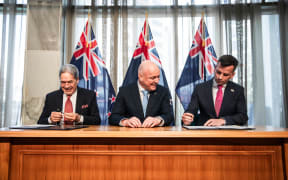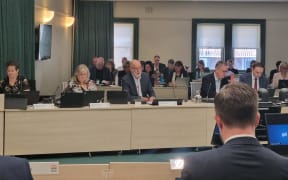
The coalition government has agreed to restore the right to local referendum on the establishment or ongoing use of Māori wards, including requiring a referendum on any wards established without referendum at the next local body elections. Photo: RNZ / Samuel Rillstone
Councils are attacking the government's proposal to bring back local referenda for Māori wards.
The former Labour government abolished them in 2022 saying no other types of wards, such as rural wards, went to a vote.
But the coalition has agreed to restore the right to have a referendum, including requiring a vote on any wards set up without referendum at the next local elections.
The president of Local Government New Zealand Sam Broughton said all wards should be treated the same and local decisions should be left up to councils.
"We made the same case last time this was changed. It's not that we're saying there should be Māori wards or that there shouldn't be Māori wards. We're just saying when that decision is made by council it shouldn't be subject to referenda when no other ward or constituency decision needs to go to referenda also."
Broughton said abolishing referenda for Māori wards had helped improve indigenous representation on councils.
"Since 2019, when the representation of Māori on local government was about 14 percent, we've now seen that lift to just over 20 percent at the last election".
He said claims Māori wards gave Māori more votes than anyone else were wrong.
"As we go through the decisions about what wards and constituencies there should be as a council, we have to do that every six years, there's some rules that need to be applied.
"There's a plus or minus 10 percent rule around representation and so that means whether you're a Māori ward constituent in the constituency for Māori wards or whether you're on a general ward or a specific ward, maybe in a rural situation, those same rules around needing to represent about the same number of people, plus or minus 10 percent, still apply".
Broughton said there was now the highest representation of Māori elected members in local government ever.






